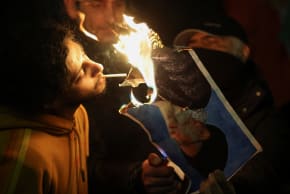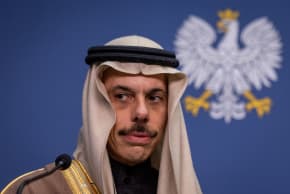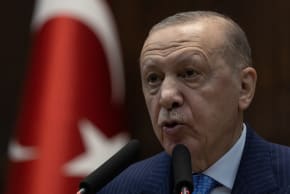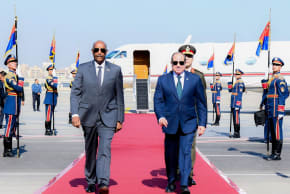Saudi Arabia
Voices from the Arab press: Davos 2026, Trump's Board of Peace, Saudi Arabia, feminism
A weekly selection of opinions and analyses from the Arab media around the world.


Syria, Saudi Arabia ink mega investment deals in push for reconstruction after years of war

No clear objectives for US military action in Iran, officials say

Turkey, Saudi Arabia looking to cooperate on new '5th-generation' warplane - report
Saudi media ramps up anti-Israel rhetoric, dimming normalization hopes - report
“Oh God, deal with the Jews who have seized and occupied, for they cannot escape your power,” Sheikh Saleh bin Humaid, an imam at the Grand Mosque in Mecca, said in a recent sermon.

Trump has betrayed the Iranian people, but it's not too late to topple the regime - editorial
“If it ends like this, he will be remembered as the worst president ever for Iranians,” one Iranian who managed to flee told The Jerusalem Post.

Pentagon approves potential sale of F-15 support, equipment to Saudi Arabia
The Pentagon explicitly stated that the sale would not alter the military balance of power in the region, nor would it have any adverse effects on the United States' defense readiness.

Saudi Arabia can't have peace with Israel and reject Jewish sovereignty - opinion
If Saudi Arabia thinks “Zionist” is an Insult, it’s not ready for Abraham Accords peace or economic integration.

US fighter jet downs Iranian drone near aircraft carrier, gunboats approach US-flagged tanker
Iranian Shahed-139 drone shot down by F-35 jet over Arabian Sea • In separate incident, six Iranian gunboats approach US-flagged oil tanker in Strait of Hormuz

From rivals to partners: What does Erdogan’s Saudi visit mean for the Middle East? - analysis
Saudi Arabia welcomed Erdogan for talks highlighting closer Ankara-Riyadh ties as the kingdom reconsiders its regional priorities.

Turkey delivers advanced drones to Egypt for Sudan operations
Egypt, sharing a 1,200 km border with Sudan, has strongly backed Sudan’s military in its nearly three-year conflict with the RSF paramilitary group.

Where is Mohammed bin Salman’s mother? And why does it matter for Israel? - opinion
In dynastic cultures, legitimacy is performed through spectacular acts offered to the maternal witness.

Witkoff, Araghchi to meet as Iranian general warns ‘no American will be safe’ if conflict erupts
A meeting between US and Iranian officials in Istanbul is seen as a best-case scenario, sources familiar with the plans said.

The Gulf’s Cold War: How Saudi-UAE rivalry is tearing the region apart - opinion
At its core, the Saudi-UAE feud reflects fundamentally incompatible visions of regional order.
